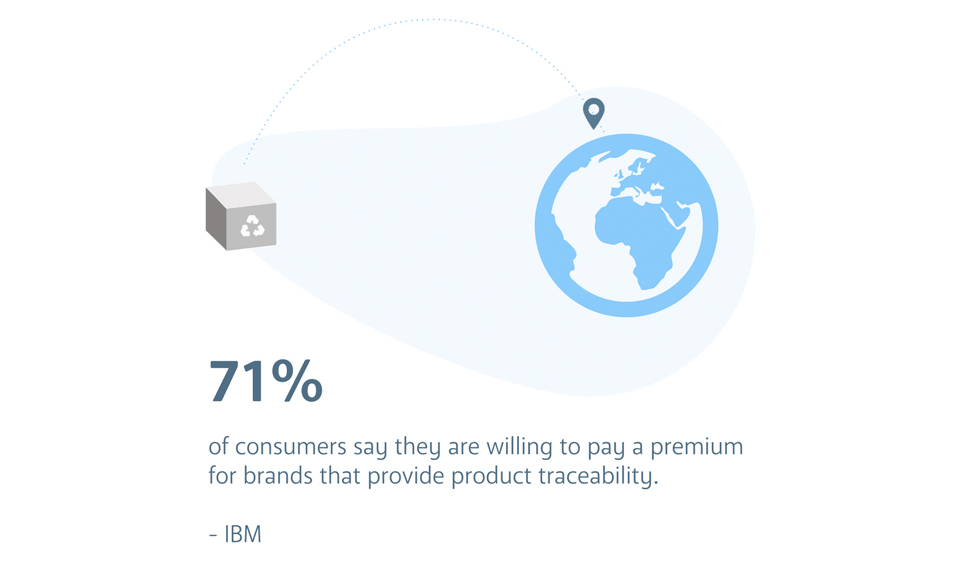Closing the loop: the impact of enriched digitalization in accelerating circular value chains
Repurposing, recycling and reusing materials is a crucial challenge for companies making the move from a linear to a sustainable, circular supply chain economy
This article was produced by Financial Times for Dassault Systemes
Repurposing, recycling and reusing materials is a crucial challenge for companies making the move from a linear to a sustainable, circular supply chain economy
Consumers have spoken. Their preference for companies with sustainability credentials is being reflected in their spending, with research by Accenture revealing that 72 per cent of consumers said they were actively buying more environmentally friendly products than they did five years ago. A huge 81 percent said they will buy even more over the next five years.
The manufacturing sector contributes significantly to global GDP but also produces almost a quarter of global greenhouse gas emissions. With an astounding 8m tonnes of waste plastic ending up in the world’s oceans every year, manufacturing companies are at a critical convergence of economic input and use of resources. To create economic value within planetary boundaries, leaders must make embracing circular principles the foundation of their business. At the same time, there is increasing regulation which requires companies to implement green policies and consume responsibly.
Lucas Florez, Sustainability and Circular Economy Industry Process Expert at DELMIA, Dassault Systèmes’ Global Operations brand, says a main driver for companies is capturing, creating and retaining value in operating their business. “The main driver is the realisation that such transformations directly impact their ability to do business. Period. Take a food producer. They depend a great deal on what happens upstream in the supply chain - the raw materials to produce food. They can no longer treat that raw material as a commodity, as it is essential for their future business. Soil health and water is a matter of concern for everyone in the long run. So regenerative agricultural practices are not only important for the farmer but for the manufacturer and it becomes a relationship of creating and distributing value for the benefit of all stakeholders.”
It has become clear that environmental and financial performance are linked. Research by Dassault Systèmes has shown that businesses can expect to see a 16 per cent increase in market performance over a three-year period if they focus their sustainability efforts primarily on material, social and environmental factors. Today, business success relies on the ability of a company to adopt and embrace sustainable circular practices right from the design process through manufacture to end product, and that is enabled through digital technology.
Industrial Resolutions
With green factors playing a large role in demand today particularly from millennial consumers, adopting a corporate identity which aligns with sustainability is paramount. Given the European Green Deal and this year’s Circular Economy Action Plan, there is growing pressure to change the way we produce and consume. Almost six in 10 consumers are willing to change their shopping habits to reduce their environmental impact, while nearly eight in 10 say that sustainability is important to them. More than 70 per cent of those who say it is very important would pay an average premium of 35 per cent for brands that are sustainable.

Designing and repurposing waste is at the very core of the circular economy. Rather than losing value by abandoning materials once they have served their purpose, this ethos reframes processes and supply chains to improve output and value. The goal is to redesign business models and value chains that ensure the durability of products while retaining value, and that when products reach the end of their serviceable life, they can be re-manufactured and used for a new purpose. Manufacturing processes need to cater for this. It is clearly a key issue for businesses, as 51 per cent of supply chain professionals say they expect to increase their focus on circular economy strategies over the next two years
Virtuous Circles
Closing the loop in supply chains is the first and most important step in making manufacturing more sustainable. Ensuring a circular flow of materials and products while introducing active disassembly can only be fully realised through the adoption of digital technology, something which can also help navigate the challenges involved. Digital platforms are crucial in providing visibility so that each moving part of the supply and value chain can be assessed and monitored in one place, accounting for every step in the process and allowing businesses to develop their offering from ownership to a service. A digital supply chain creates a fully connected loop and coordinates all moving elements in real time. Dassault Systèmes’ 3DEXPERIENCE® platform structures processes around circular economy concepts by connecting them throughout the entire lifecycle of a product. This virtual twin experience focusses on making improvements in the supply chain by eradicating any time-consuming, unnecessary and costly intermediaries..
The circular economy concept means that sustainability is applied to every step of the process. With 71 per cent of consumers saying that traceability is very important and that they are willing to pay a premium for brands that provide it6, companies are increasingly being held accountable for a high standard of traceability and waste management. As Lucas Florez notes: “The concept of waste is a flaw in the design of products and systems.”

Cross-supply chain insight provided by collaborative, digital technology such as Dassault Systèmes’ 3DEXPERIENCE solutions can prove invaluable in coordinating the moving parts in a supply chain. It allows companies to identify products that would otherwise be wasted and reintroduce them as input.
“If there is one thing that we really need to get right to change the direction of environmental catastrophe it is the circular economy,” Florez explains. “It offers a framework where we can create value, preserve some good aspects of life as we know it today but at the same time manage stocks and materials in a smarter way. The circular concept offers the framework for a regenerative way of running the economy. It’s a shift in mindset and a model for how we can make things better for the environment rather than taking away from it.”
Read more articles on Connected Industry
Explore our Industry Solution Experiences
Learn more about how our industry solutions can help you to achieve your professional ambition and business objectives
